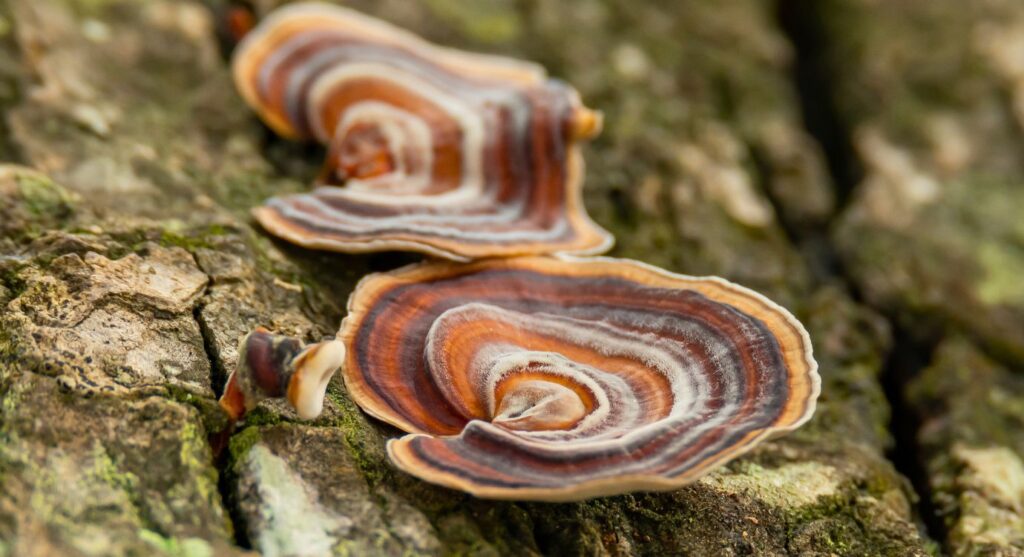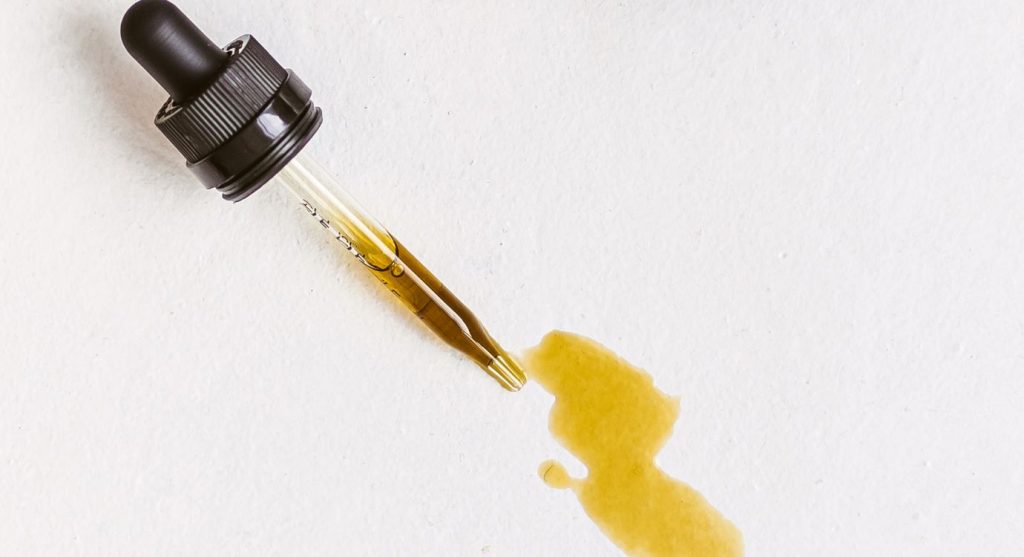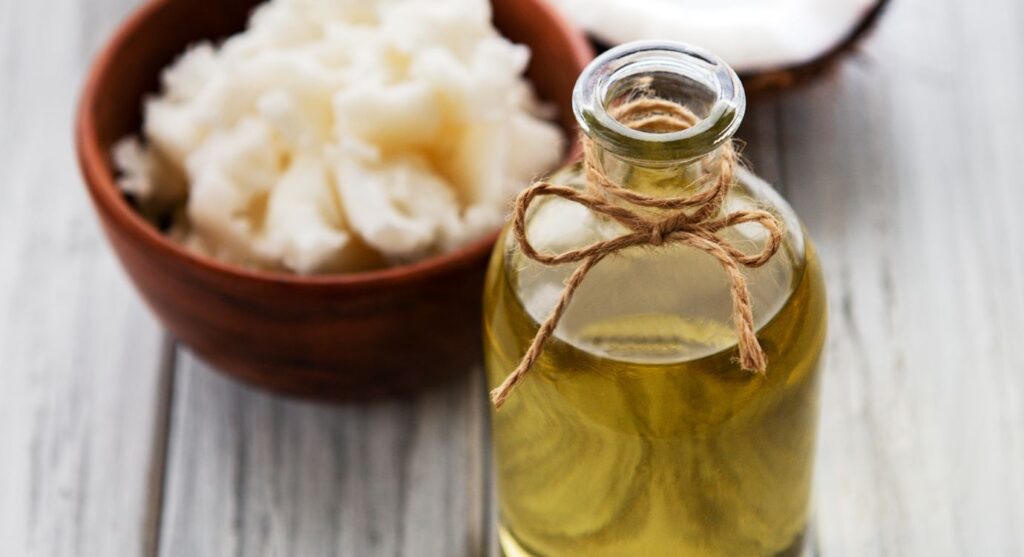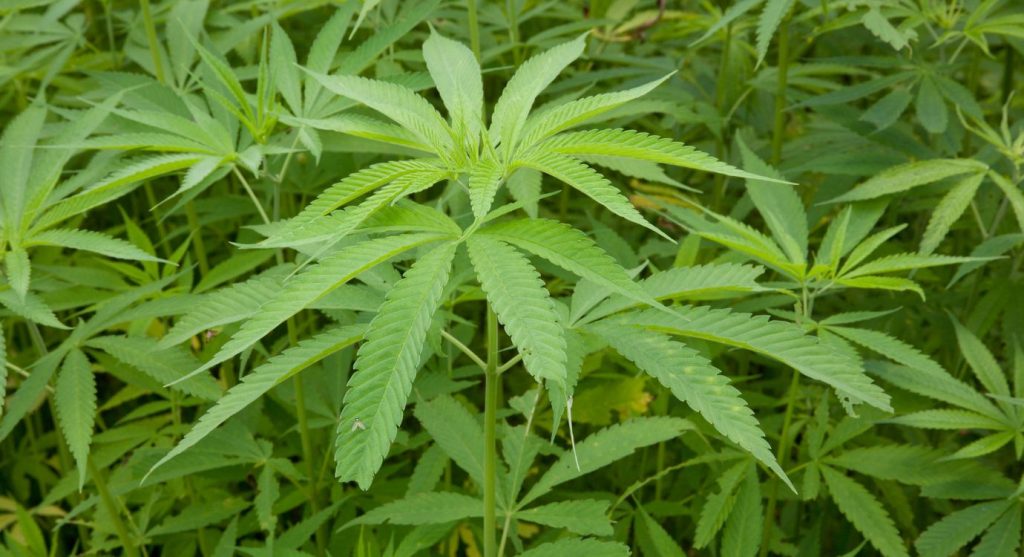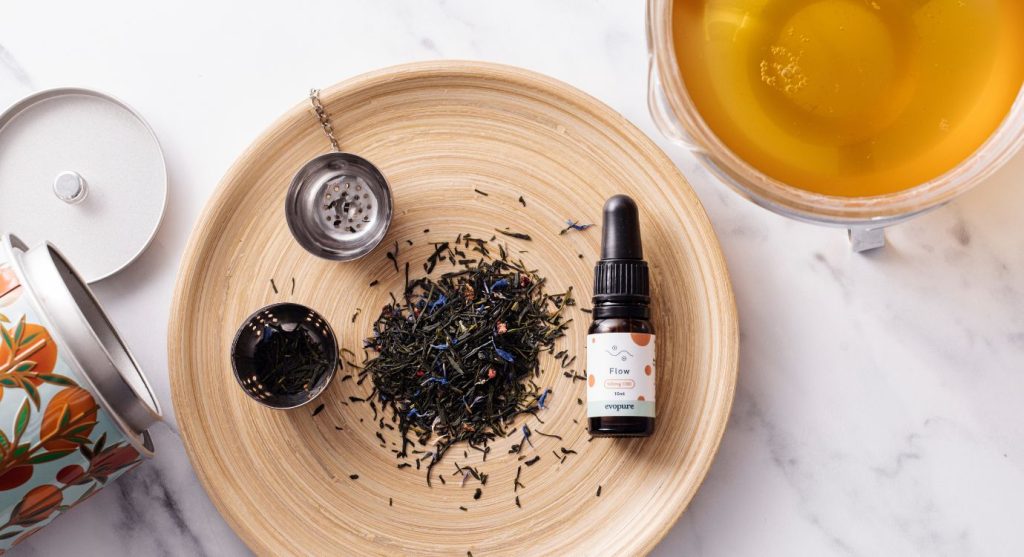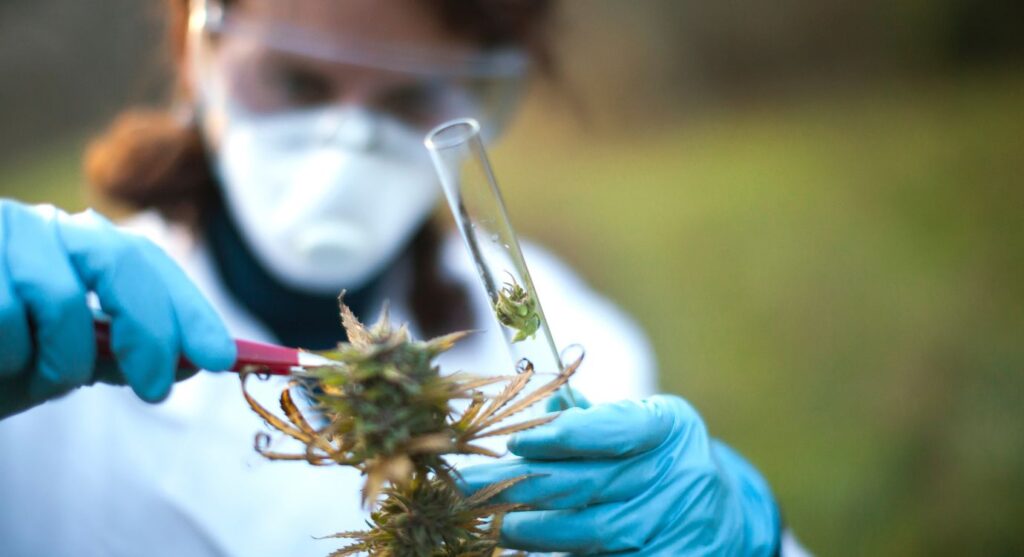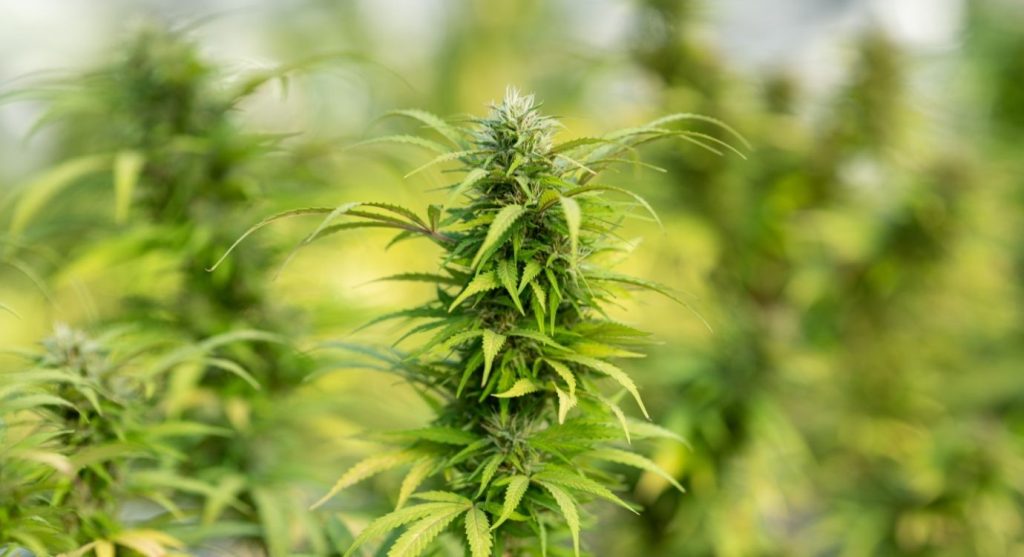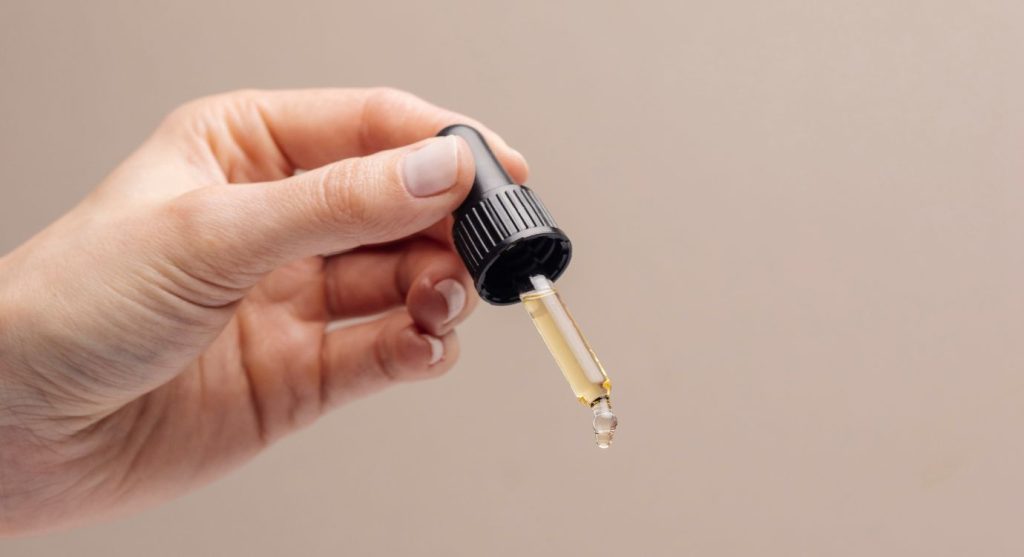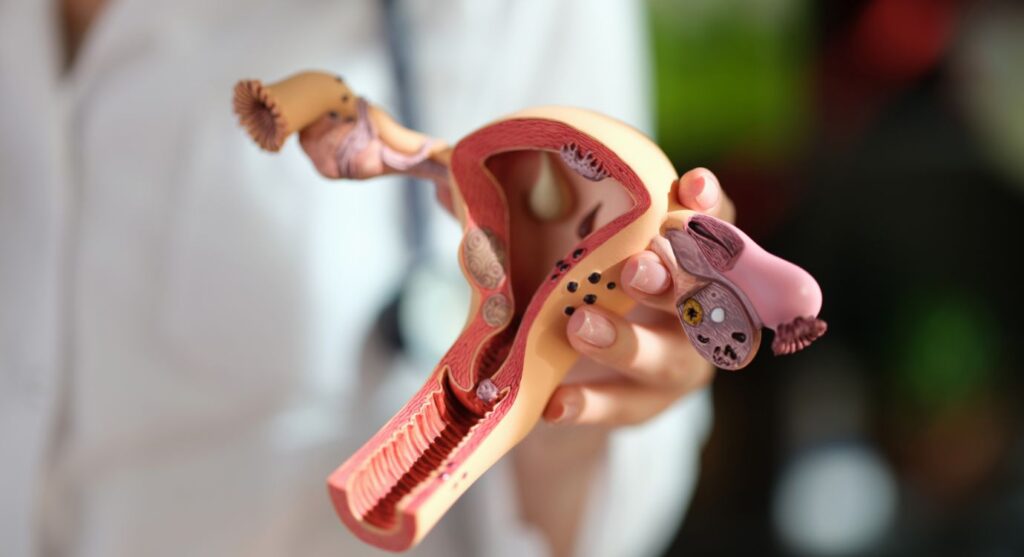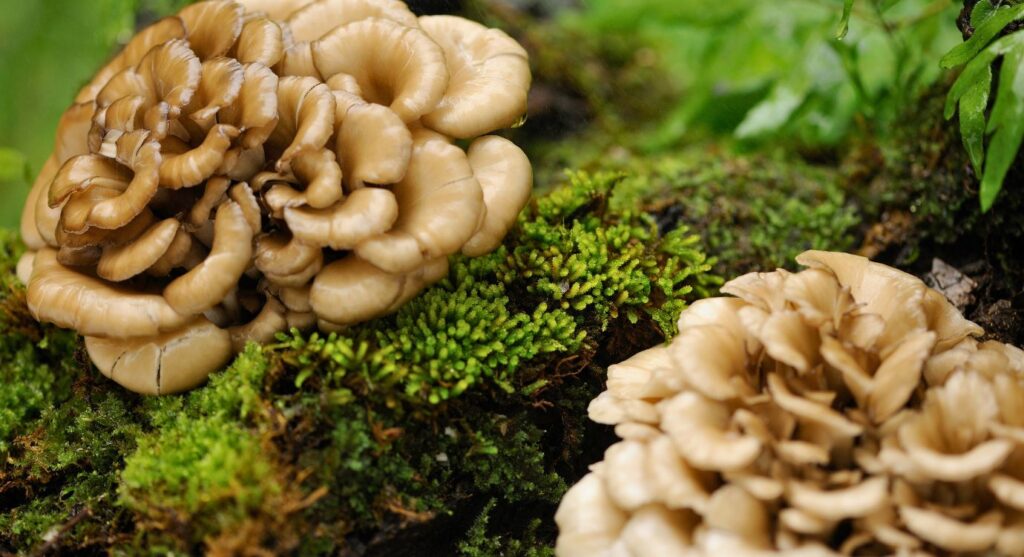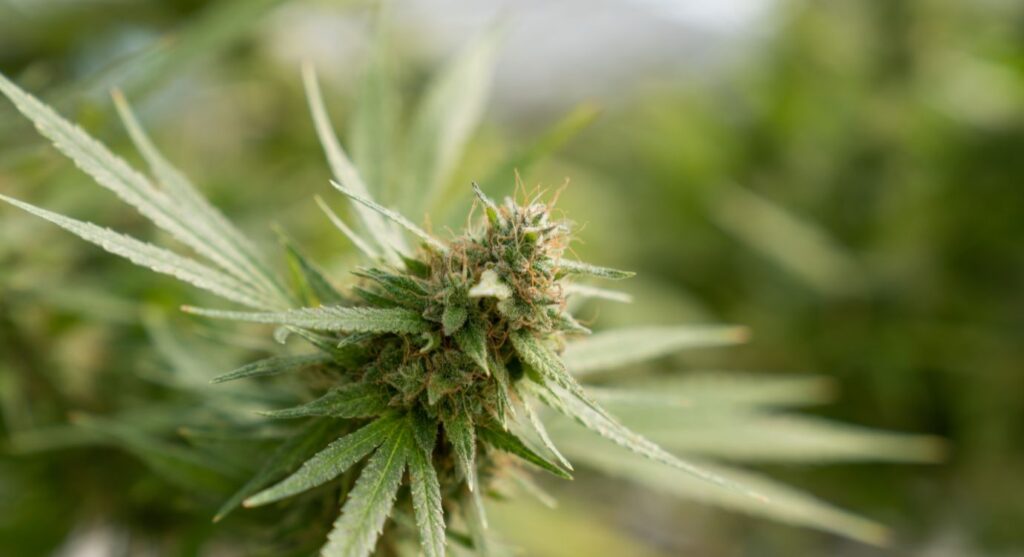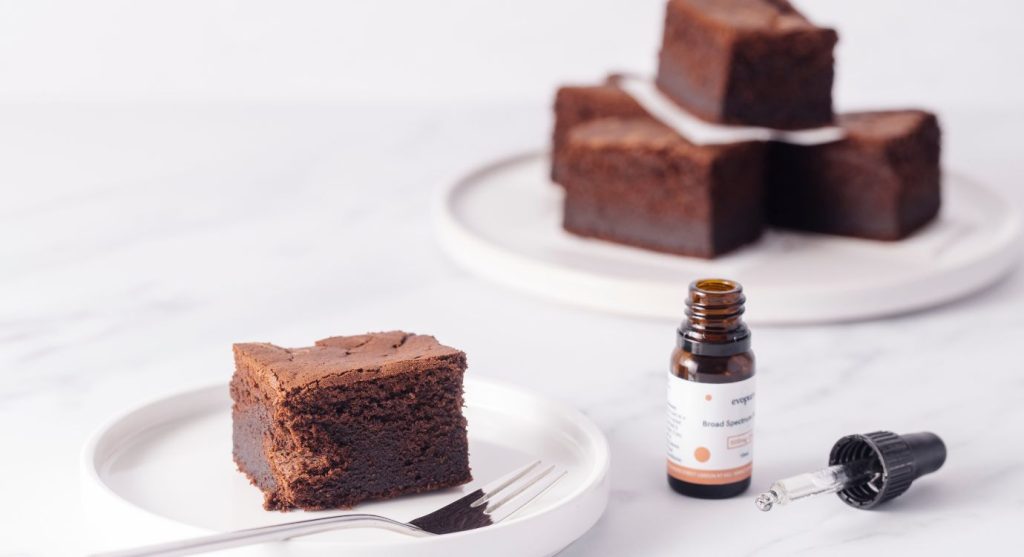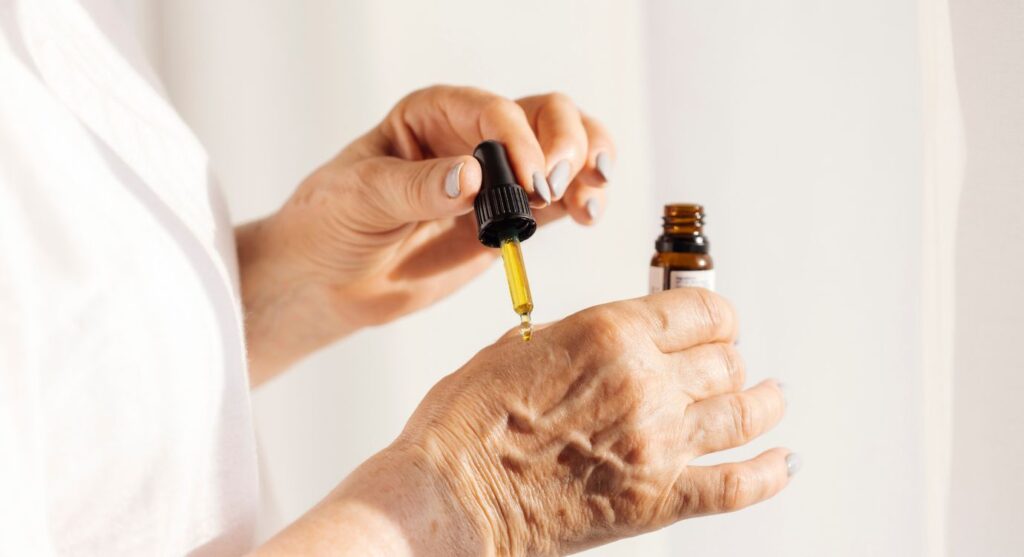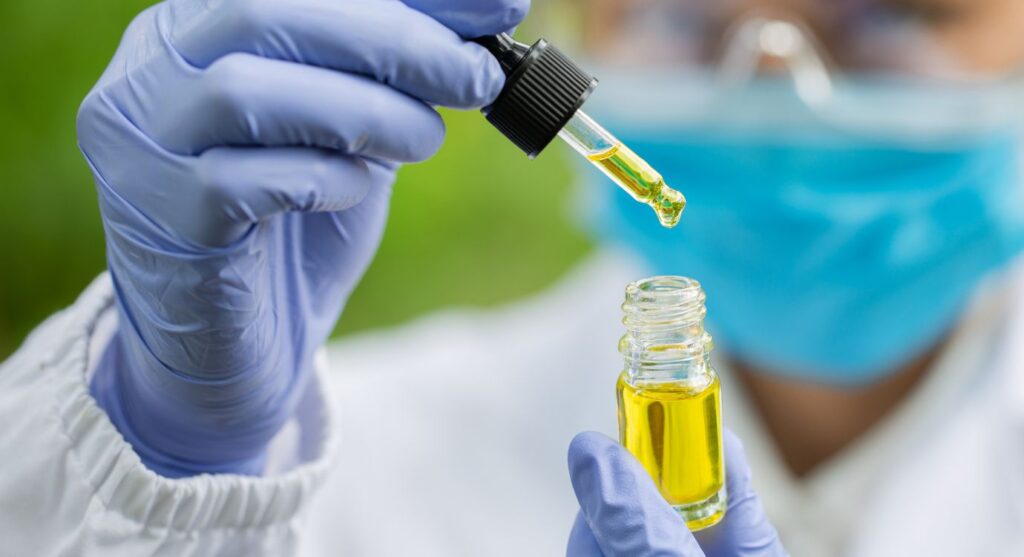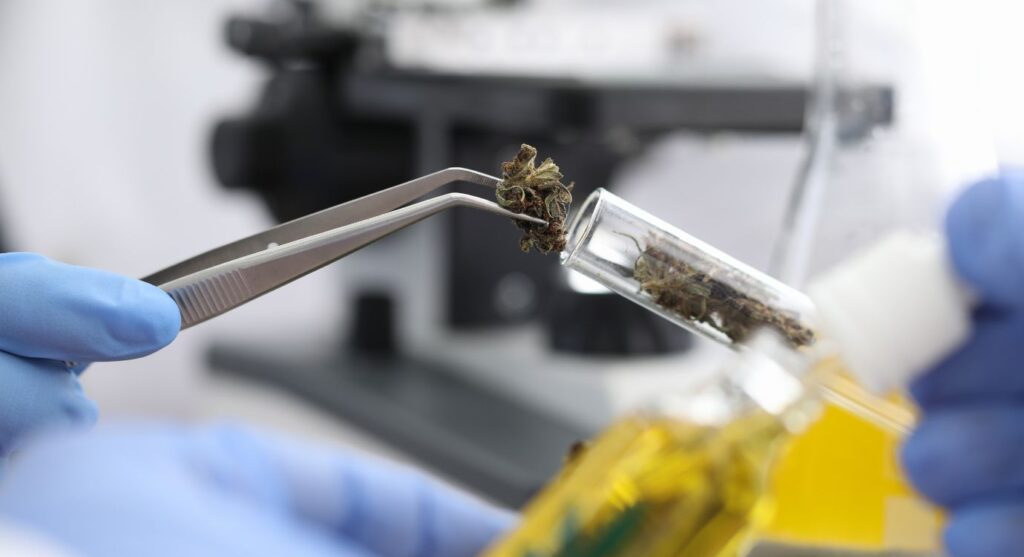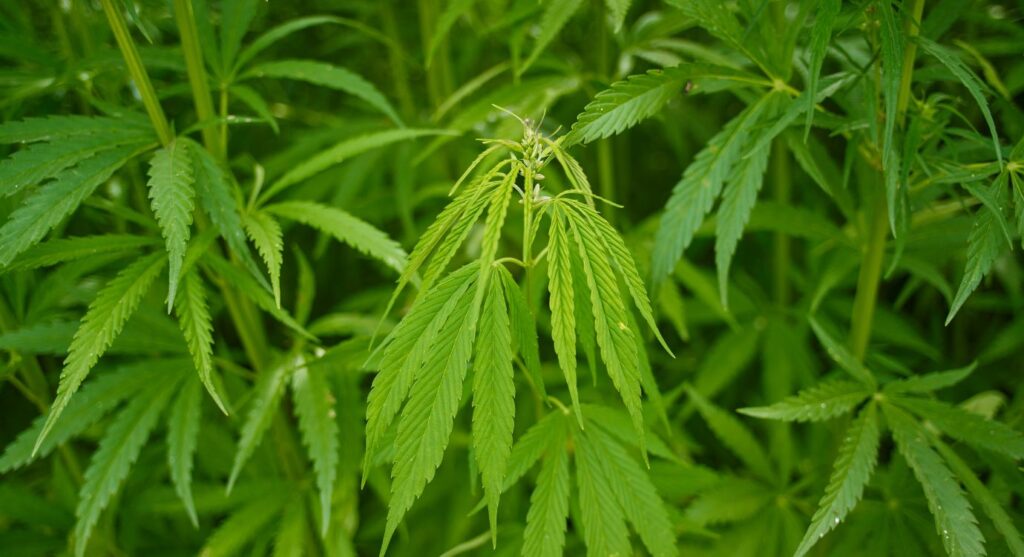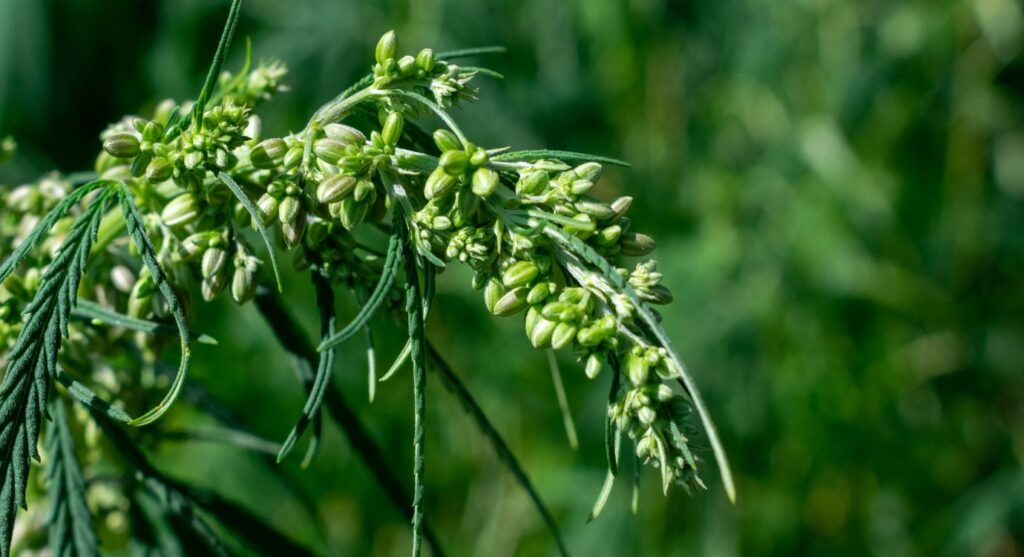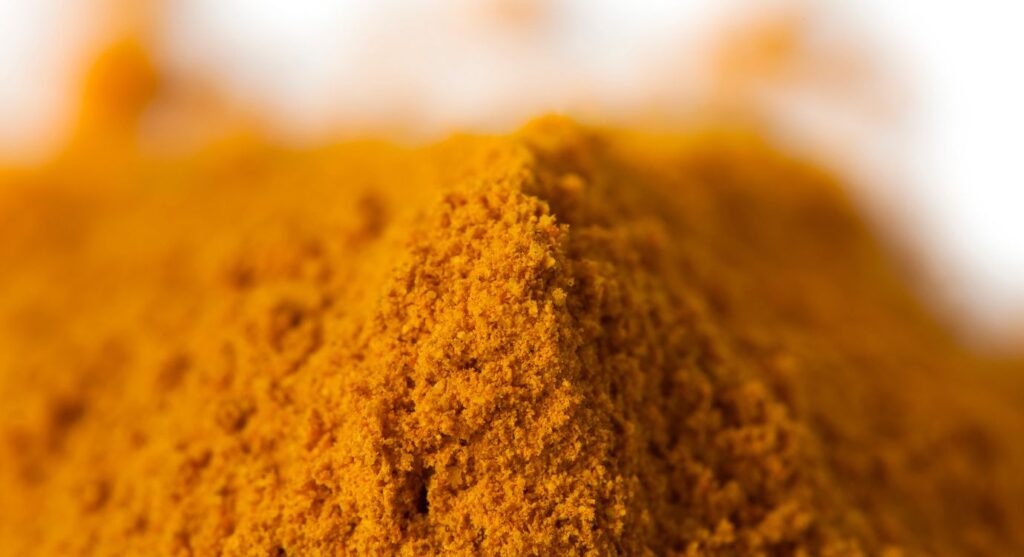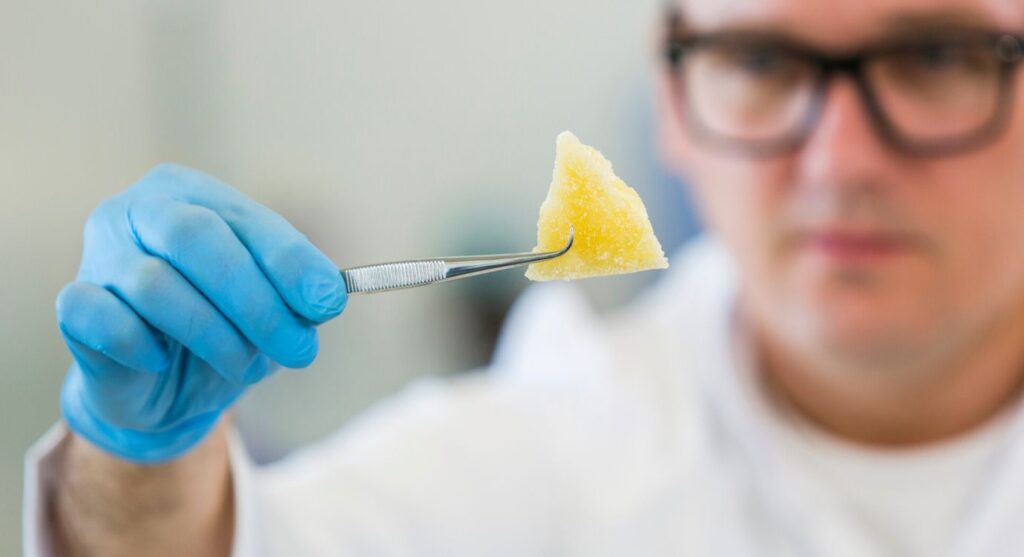Mushrooms are not a new thing when it comes to medicine. They’ve been used for centuries due to their numerous health benefits.
Among the wide varieties of mushrooms, the adaptogenic Turkey Tail stands out for its versatility and potential health benefits.
In recent years, it has gained popularity in the health and wellness community due to its antioxidant, anti-inflammatory, and immune-boosting properties.
With so much hype surrounding its usage and benefits, it’s only fair we explore all there is to know about Turkey Tail mushrooms. So in this blog post, we’ll discuss the following:
- What Turkey Tail mushroom is
- The benefits of Turkey Tail mushroom
- The side effects of Turkey Tail mushroom
- How to use Turkey Tail Mushroom
In this guide:
What is Turkey Tail mushroom?
Turkey Tail mushroom, scientifically known as Trametes versicolor, is a fungus that commonly grows on dead trees and logs.
It is named for its striking resemblance to the colourful tail of wild turkeys. This mushroom has a thin, woody texture and a distinctive fan-like shape, with a range of colours that vary from shades of brown, beige, grey and green, with a white rim around the edges.
Turkey tail mushrooms have been used in traditional medicine for centuries due to their potential health benefits.
They contain a range of biologically active compounds such as polysaccharides, beta-glucans, triterpenoids, and flavonoids believed to possess antioxidant, anti-inflammatory, and immune-boosting properties.
The use of Turkey Tail mushrooms dates back centuries, with its use in traditional Chinese medicine and by indigenous people in North America as a natural remedy for various ailments.
In Chinese medicine, it was used to support the immune system, promote digestion, and improve overall health.
In Japan, turkey tail mushroom, known as kawaratake, was traditionally used to support vitality and longevity. As a matter of fact, it was believed to be so beneficial that it was used as a symbol of good fortune and long life.
During World War II, researchers in Japan began to study the medicinal properties of turkey tail mushrooms. They isolated a polysaccharide called PSK, which was found to have immune-boosting properties. Since then, PSK has become a popular immune-boosting supplement in Japan and other parts of the world.
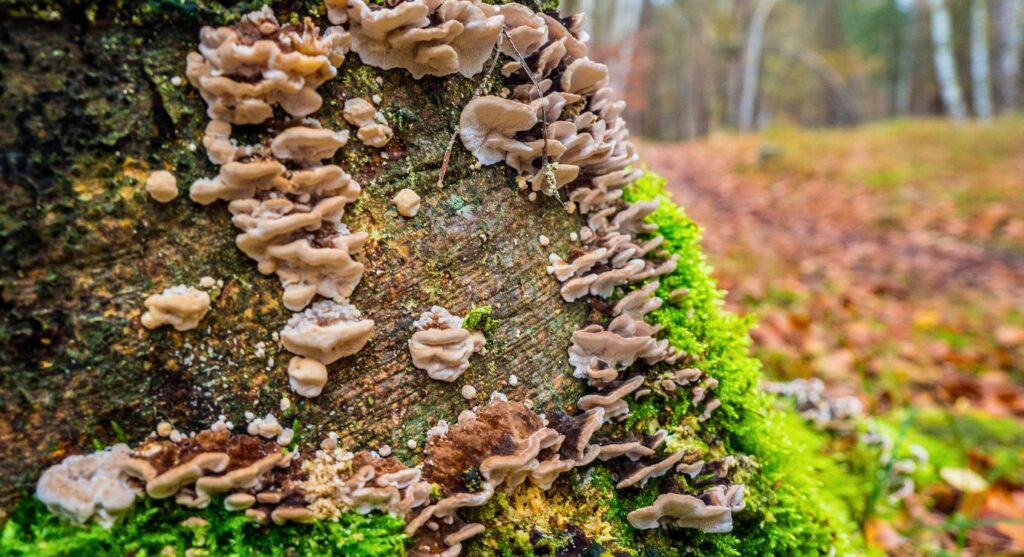

What are the benefits of Turkey Tail mushrooms?
Turkey Tail mushroom is as popular today because of its medicinal properties and health benefits.
So what exactly are the magical benefits of using Turkey Tail mushrooms?
Well, there are quite a few of them, and they include the following.
Turkey Tail for immune system support
Turkey tail mushroom contains various bioactive compounds, including polysaccharides, beta-glucans, and triterpenes, that are believed to support the immune system in several ways.
One of those ways is via the stimulation of immune cell activity. Polysaccharides and beta-glucans found in Turkey Tail mushrooms can help stimulate immune cells, such as macrophages and natural killer cells, which fight infections and diseases.
Turkey Tail mushroom is believed to increase the production of cytokines, which are signalling molecules that help regulate the immune response and promote inflammation when necessary. Cytokines also assist in boosting the anti-cancer activity in the body by sending signals that destroy abnormal cells while leaving normal cells to live longer.
Turkey Tail mushrooms contain prebiotics that can help feed beneficial gut bacteria (probiotics), which are crucial in maintaining a healthy immune system. In an 8-week-long study carried out on 24 healthy people, it was discovered that consuming 3,600 Mb of PSP extracted from Turkey Tail per day led to beneficial changes in gut bacteria.
Not only that, but the growth of problematic E.coli and Shigella bacteria was also suppressed.
Turkey Tail for improved athletic performance
Improved athletic performance is said to be another benefit of Turkey Tail mushrooms. This is based on certain studies that have suggested Turkey Tail may benefit mitochondrial function, the energy-generating organelles in cells. And improving mitochondrial function can lead to increased energy and endurance during exercise.
Additionally, Turkey tail mushroom contains compounds shown to have adaptogenic properties, which can help the body adapt to stress and reduce fatigue. This can allow for longer and more intense exercise sessions.
In a study carried out on mice, it was discovered that Turkey Tail extracts could improve exercise performance and reduce fatigue.
Not only that, the mice treated with Turkey Tail experienced lower blood sugar levels at rest and post-exercise.


Turkey Tail as an antioxidant
Turkey tail mushroom contains various bioactive compounds shown to have antioxidant properties.
Antioxidants help prevent or reduce damage caused by free radicals, which are unstable molecules that can damage cells and contribute to the development of chronic diseases.
One of the main antioxidants found in turkey tail mushrooms is a type of polysaccharide called polysaccharide-K (PSK), which has been shown to have potent antioxidant effects.
PSK scavenges free radicals and protects cells from oxidative stress, which can help to prevent cell damage and reduce the risk of chronic diseases such as cancer, diabetes, and cardiovascular disease.
In addition to PSK, turkey tail mushroom contains other antioxidants such as flavonoids, phenols, and tocopherols. These antioxidants work together to neutralise free radicals and reduce oxidative stress throughout the body.
Research has also suggested that the antioxidant properties of turkey tail mushrooms may have specific health benefits, such as supporting liver health, improving gut health, and enhancing immune function.
Turkey Tail for cardiovascular health
In addition to its antioxidant and anti-inflammatory functions, Turkey Tail mushroom has the potential to support your cardiovascular health.
How?
Based on several research studies, Turkey Tail is believed to have hypertensive properties, meaning it may be able to regulate blood pressure.
A possible explanation for this is that turkey tail mushrooms contain compounds that relax the blood vessels, causing them to dilate and allowing blood to flow more easily. This can help reduce the resistance to blood flow and lower blood pressure.
Another possible explanation is that turkey tail mushrooms contain compounds that can inhibit the activity of enzymes that constrict blood vessels and raise blood pressure.
Additionally, the anti-inflammatory and antioxidant properties of turkey tail mushrooms may also play a role in reducing blood pressure. Chronic inflammation and oxidative stress can contribute to the development of hypertension, and reducing these factors can help improve blood pressure control.
Turkey Tail is also suggested to have cholesterol-lowering effects, potentially due to its ability to reduce inflammation and oxidative stress. High levels of LDL (low-density lipoprotein) cholesterol, also known as “bad” cholesterol, are a risk factor for cardiovascular disease.
Read more: Mushrooms for inflammation
Anti-cancer potential of Turkey Tail
Turkey Tail mushrooms are by no means a treatment or prevention for cancer. However, it is believed to have some anti-cancer potential.
This is because it may have the ability to induce apoptosis and inhibit angiogenesis.
Apoptosis is a process by which damaged or abnormal cells are programmed to self-destruct. Turkey tail mushroom contains compounds that induce apoptosis in cancer cells, which can help to prevent their growth and spread.
On the other hand, angiogenesis is the process by which tumours develop new blood vessels to support their growth. Turkey tail mushroom contains compounds that can inhibit angiogenesis, which can help to prevent the growth and spread of tumours.
A test tube study was carried out to investigate the action of PSK on angiogenic growth factors, angiogenesis inhibitors, and angiogenesis in colon cancer cells. It found that Turkey Tail inhibited the growth and spread of human colon cancer cells.
Nonetheless, the most impressive evidence surrounding the anticancer benefits of consuming Turkey Tail mushroom is its effectiveness when combined with other traditional cancer treatments like chemotherapy and radiation while reducing their potential side effects.
But, if you are receiving cancer treatment, always speak to a healthcare provider before incorporating Turkey Tail into your routine.


What are the side effects of Turkey tail mushrooms?
Turkey tail mushroom is generally considered safe and well-tolerated. But despite all of this, a few side effects from consumption have been reported.
These side effects are mostly mild and easily avoidable, but that can only happen if you are aware of what they are in the first place.
So, some potential side effects of Turkey Tail mushrooms are:
It causes digestive upset
Turkey tail mushrooms may cause digestive upset in some people due to their high fibre content.
The mushroom contains a type of fibre called beta-glucans, which are complex polysaccharides that are difficult for some people to digest. This can lead to symptoms such as bloating, gas, and diarrhoea.
Additionally, some people may be intolerant or sensitive to certain compounds found in mushrooms, such as chitin or mannitol, which can also cause digestive symptoms.
It is important to know that digestive upset is not a common side effect of turkey tail mushrooms, and most people can consume it without any issues.
Allergic reactions
Turkey tail mushrooms can cause allergic reactions in people allergic to mushrooms or other fungi. The allergic reaction is caused by an overreaction of the immune system to the proteins found in the mushroom.
The symptoms of an allergic reaction to turkey tail mushrooms can vary from mild to severe and may include itching, swelling, hives or rashes, and wheezing.
Interactions with medication
Turkey tail mushrooms may interact with certain medications due to their potential effects on the immune system and their ability to affect the metabolism of some drugs. Some medications that may interact with turkey tail mushrooms include:
- Immunosuppressants
Turkey tail mushrooms may stimulate the immune system, which can potentially interfere with the effects of immunosuppressant medications. - Chemotherapy drugs
Turkey tail mushrooms may enhance the effects of certain chemotherapy drugs, which can increase the risk of side effects and toxicity. - Blood thinners
Turkey tail mushrooms may have anticoagulant properties, which can increase the risk of bleeding in people taking blood-thinning medications.
How do I use Turkey Tail mushrooms?
The good thing about most mushrooms is that they are very versatile, and Turkey Tail isn’t any different. There are numerous creative ways to consume it, and here are a few of them:
- By making tea
Turkey tail mushroom tea is a simple and popular way to enjoy this mushroom. You can use dried or fresh turkey tail mushrooms to make tea. Simply steep a handful of sliced mushrooms in hot water for 10-15 minutes, strain, and enjoy. - By adding it to soups and stews
Turkey tail mushroom is an excellent addition to soups, stews, and broths. Simply slice the mushroom and add it to your favourite recipe. - By making a tincture
A tincture is a concentrated herbal extract that can be added to water or taken directly. To make a turkey tail mushroom tincture, soak sliced mushrooms in alcohol for several weeks, strain, and bottle. - By using it as a supplement
Turkey tail mushroom is available in capsule or powder form, making it easy to incorporate into your daily supplement routine.
Frequently asked questions:
What is Turkey Tail mushroom good for?
Turkey Tail mushroom is known for its immune-boosting properties and may also have anti-cancer potential due to its polysaccharide content. However, more research is needed to understand its benefits fully.
Is Turkey Tail mushroom toxic?
Turkey Tail mushroom is generally considered safe for consumption, but it’s always important to source from a reputable supplier and consume in moderation.
Final words
In conclusion, turkey tail mushrooms are versatile and nutrient-packed fungi with a range of potential health benefits.
From supporting the immune system to promoting cardiovascular health, these mushrooms have been used in traditional medicine for centuries and continue to gain popularity in the health and wellness community.
However, it’s important to remember that more research is needed to fully understand the effects of turkey tail mushrooms on the human body. As with any supplement or natural remedy, it’s always a good idea to consult a healthcare professional before incorporating it into your routine.
So if you’re looking for a natural way to support your health, consider trying turkey tail mushrooms! They’re easy to find in supplement form or at your local health food store, and who knows? You might just discover a new favourite superfood.
10% off on your first order
Complete this one-minute quiz and find the right products for you.


